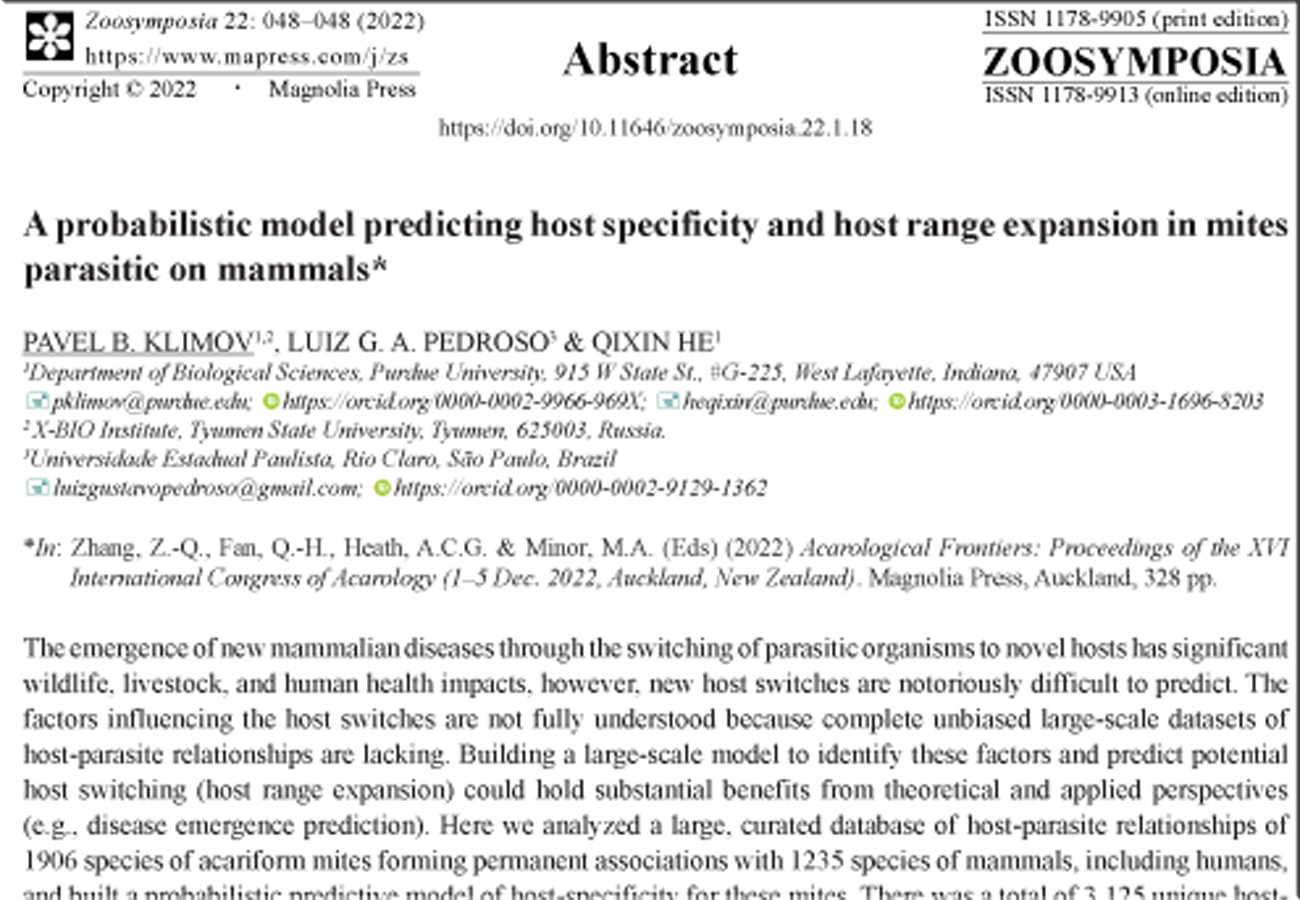Abstract
The emergence of new mammalian diseases through the switching of parasitic organisms to novel hosts has significant wildlife, livestock, and human health impacts, however, new host switches are notoriously difficult to predict. The factors influencing the host switches are not fully understood because complete unbiased large-scale datasets of host-parasite relationships are lacking. Building a large-scale model to identify these factors and predict potential host switching (host range expansion) could hold substantial benefits from theoretical and applied perspectives (e.g., disease emergence prediction). Here we analyzed a large, curated database of host-parasite relationships of 1906 species of acariform mites forming permanent associations with 1235 species of mammals, including humans, and built a probabilistic predictive model of host-specificity for these mites. There was a total of 3,125 unique host-parasite records.
References
-


